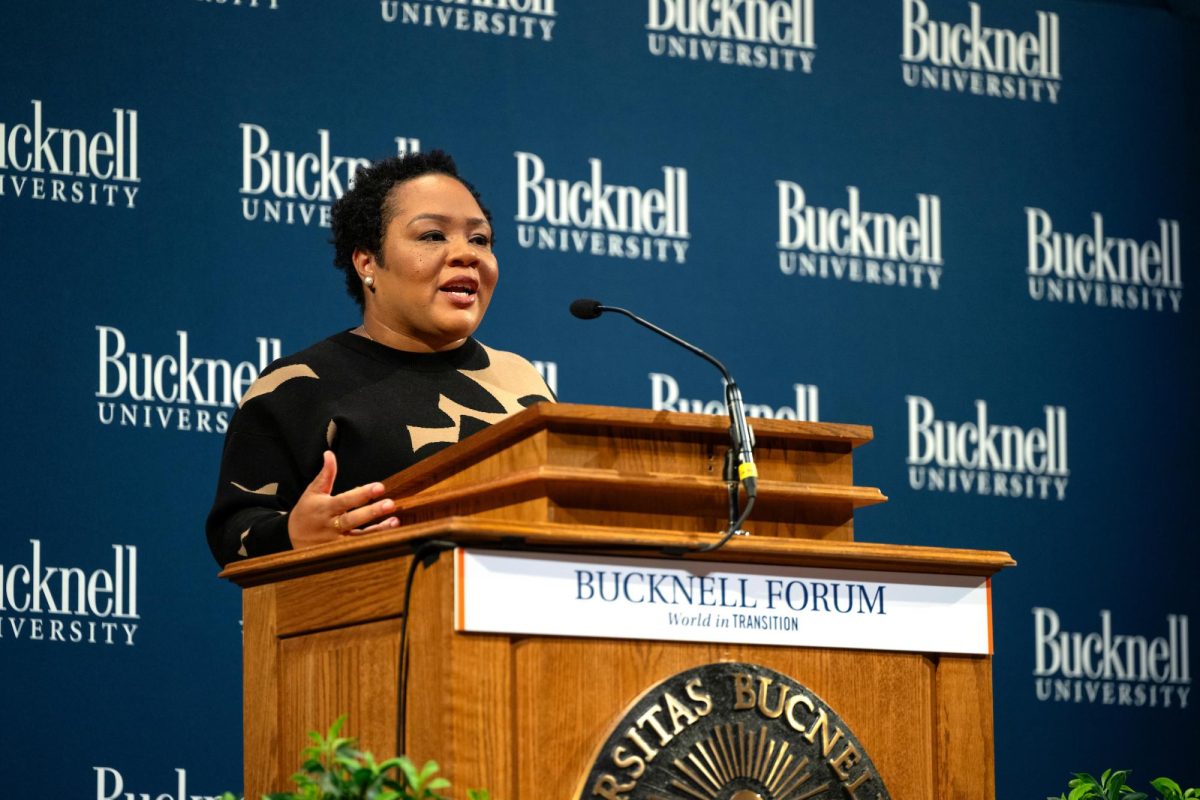Yamiche Alcindor has been many things throughout her career: reporter, moderator, correspondent, anchor… But one thing has remained consistent across any role she’s held and that is her need to tell the whole truth.
After falling in love with journalism at sixteen, Alcindor knew there was no other path she’d want to set out on. She attended Georgetown University to earn a degree in English, African American Studies and Government, graduating in 2009. Part of her commitment to honest reporting stems from her passion for the craft: “If you love what you’re doing,” Alcindor explained, “you feel a responsibility to do it well.”
That being said, Alcindor is under no delusions that she’s somehow in an automatically informed position when it comes to reporting on unfamiliar situations, cultures and perspectives. Whenever she sets out to cover a new story, she remains focused on being “fair and genuinely curious,” knowing that before anything else she needs to “understand the subject matter [and] different perspectives, to best present them accurately and responsibly.”
Taking the stage in the Weis Center for the Performing Arts at 7:30pm this past Tuesday, Sept. 24, Alcindor delivered a speech on how she is navigating a world in transition as someone on the front lines, delivering breaking stories and covering tumultuous events both politically and personally.
“We’re living through an incredible moment in history, and I am honored to chronicle it,” Alcindor began. “Journalism is my way [of] bending [the] moral universe towards justice,” though at the same time, she knows the importance of “taking [all relevant] perspectives into consideration” and representing them proportionally.
As she’s journeyed across the country for story after story, Alcindor has noticed that “a lot of Americans have most things in common.” Fundamentally, “people just want to feel like they have a shot at ‘the American Dream,’ whatever that looks like [for them].” Where lines are drawn and tensions rise depends on the individual’s stance on “the way to move forward.” Alcindor recognizes the period of change America is in and how that change “can be scary for some people,” but hopes people come away from her journalism with a deeper appreciation for “how others think” and an understanding that “having conversations” with “all sides,” recognizing everyone as people, is essential.
“[My job] is to be a professional witness,” Alcindor said, “[and] journalism is about delving into the consequences of policy in a way that gets at the lived experience of Americans.” She has never shied away from telling the “tough stories,” though those experiences—like that of reporting on the Sandy Hook Elementary shooting in Newtown, CT—have changed her as a reporter and as a person forever. Repeatedly, Alcindor emphasized the necessity of building up a “community” that will “be there for you” as you work through witnessing difficult things.
Alcindor’s “best advice” for the young would-be journalist is to “focus on your relationships.” College “goes by fast” and “you don’t want to lose the people [you’ve connected with].”
Despite the fast-moving and divisive journalistic climate, especially surrounding the upcoming presidential election, Alcindor “feel[s] good about the future of journalism.” Seeing young prospective journalists, like some of Bucknell’s own students, clamoring to break into the world and report with truth and integrity is “inspiring.” So long as these young journalists “embrace how [their] individual experiences impact [their] reporting” and “press onward,” Alcindor knows they will be able to “live her dream” as a journalist, just as she is.
Alcindor was the first to speak to this year’s Bucknell Forum theme of “World in Transition.” The next speaker will be comedian, TV host and producer W. Kamau Bell, on Oct. 22.






















